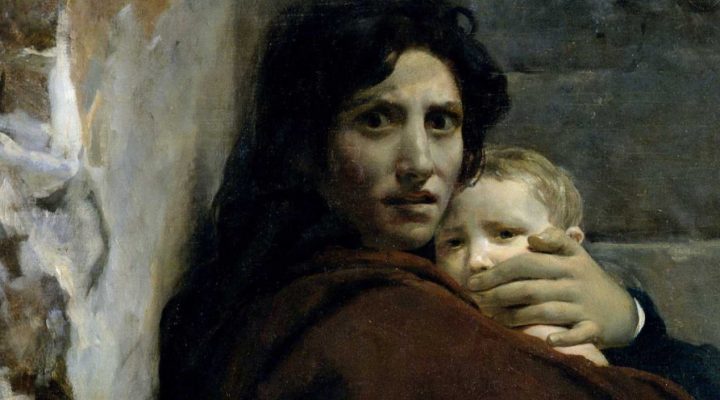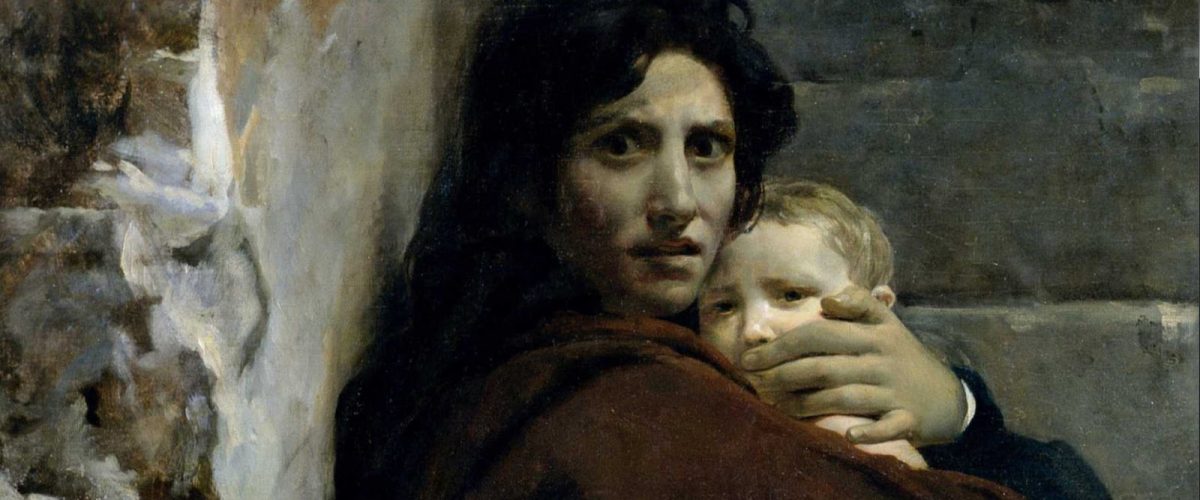We often perceive the holidays as a time of togetherness and joy, where we reunite with families and enjoy the presence of each other. However, what we do not talk about is the grief that often coincides with the Christmas season.
Our end-of-year celebrations can remind us of the family members we have lost. A time when we remember those who are no longer with us to exchange gifts, partake in the Christmas meal or simply sit together and talk. The loss of loved ones is a little bit more obvious these days, and it seems to hurt more.

Mallory Challis
Christmas celebrations often are centered around the climax of the Nativity story. It is the life of Jesus entering into the world that offers us anticipatory excitement for the season. This is (or is supposed to be) a holiday that celebrates the creation of life and the life-giving presence of the newborn Savior.
But the story is much more complex. The miraculous birth of Jesus is juxtaposed with a dramatic and tragic response: The massacre of the infants, told by the writer of the Gospel of Matthew.
As Jesus is born into the world, the lives of children all around him are forced out of it. All the children “in and around Bethlehem who were two years old or under” were killed under an ordinance given by King Herod. Unimaginable feelings of devastation and grief must have plagued their families.
Matthew 2:18, the only verse in the story that directly acknowledges this grief, tells of a mother named Rachel whose loud wails and lamentations can be heard. As she weeps for her children, Matthew’s Gospel tells readers that “she refused to be consoled, because they are no more.”
So, as we celebrate the birth of Jesus into the world, we must also acknowledge the deaths of many children that the Nativity story includes.
Consider the experience of the grieving mothers, fathers, siblings, grandparents and all others who must have been affected by this violence. This first Christmas was not a time of joy, nor was it an opportunity to witness the beautiful beginning of the life of our Savior on earth. Instead, it was a time of tragedy. This first Christmas was not a holiday at all. For those losing their loved ones at the forceful hands of King Herod, it must have been a nightmare.
And the years after, on the anniversary of the deaths of these innocent children, their families likely were reminded of this loss. The day probably served as a reminder that their children no longer were there to play, eat and be with them as they grew older. There was an empty space in their homes, at their tables and in their hearts.
“The expectation that Christmas must be a time of joy for all, and that we must constantly rejoice in the holiday season, is inaccurate to the biblical narrative.”
The expectation that Christmas must be a time of joy for all, and that we must constantly rejoice in the holiday season, is inaccurate to the biblical narrative. Sure, this is a wonderful time of year when we can come together to do good things like gift-giving or volunteer projects. We get to see friends and family who are rarely around. Christmas is a time to appreciate what we have and share our lives with those we care about. But it is also a time of grief.
Grief is built into the Nativity story, as the sounds of Rachel’s wails and lamentations echo into the ears of readers. And yet we often forget, or perhaps push away, these feelings in exchange for yummy cups of hot cocoa, joyful Christmas traditions and laughter with our friends and family.
Although not often observed in evangelical congregations today, the Feast of the Holy Innocents is a Christian feast dedicated to the lives of those babies lost in the Christmas narrative. The infants killed by King Herod were considered the first martyrs, and Christians of previous centuries found it essential to remember and honor the suffering they endured at the birth of Jesus.
“The infants killed by King Herod were considered the first martyrs.”
The feast acknowledges the wonder and light of the Christmas season but refuses to forget the death that plagued many families so long ago.
In reading the Nativity story, some may find themselves identifying with Rachel, as the feeling of grief at Christmas seems all too familiar. We feel we cannot be consoled because the life of our parent, grandparent, friend or child is no more.
But we do not often talk about this grief, at least not aloud, for fear of ruining the celebration at hand. After all, who wants to be the one to cry during Christmas dinner as you realize your beloved family member’s chair is empty? How could we feel comfortable pausing the fun of gift-giving to remind ourselves there is one less person who will receive something this year?
Perhaps your grief will not “ruin” Christmas. Rather, your grief may be biblically and historically appropriate for this solemn, family centered celebration. This is the time to remember your loved ones and allow yourself to mourn the lack of their presence. Although you certainly should make room for the joy Christmas provides, honoring your feelings of grief keeps the memory of their lives within your family traditions.
As you decorate your Christmas tree, wrap your gifts and sit at the table to partake in the holiday meal, these are the moments in which the souls of our loved ones beg to be remembered. Their lives, just as the lives of the innocent infants killed by King Herod in Matthew’s Nativity story, should be present in our hearts, minds and memories as we come together and celebrate this complex holiday.
Mallory Challis is a senior at Wingate University and currently serves as BNG’s Clemons Fellow.
Related articles:
What the grieving wish you knew about the holidays | Opinion by Laurie Taylor
Four stones to support your grief this holiday season | Opinion by Harold Ivan Smith
Angel wings and devil tails: Meditation on the Feast of the Holy Innocents | Opinion by Ken Sehested


